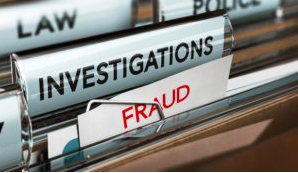Orange County Bankruptcy Fraud Attorney
If you have been charged or are under investigation for bankruptcy fraud, then you must retain a lawyer as soon as possible. Bankruptcy fraud carries lifelong consequences and places individuals in financial ruin. It is not uncommon for federal prosecutors to seize the defendant’s assets – i.e., home, bank account, stock accounts, and retirement accounts. Contact the Law Offices of John D. Rogers today to speak with an experienced Orange County bankruptcy fraud attorney.
Attorney John D. Rogers is an accomplished Orange County Federal crimes attorney and board-certified criminal law specialist. He is among the few Orange County criminal defense lawyers who have achieved board certification in criminal law. This instills confidence in his clients that his professional experience, reputation, and ethics are among the highest in the legal community.

Contact an experienced Orange County bankruptcy fraud attorney if you’re facing federal criminal charges.
Table of Contents
What is Bankruptcy Fraud?
Bankruptcy fraud is charged under 18 U.S.C. § 152 and 18 U.S.C. § 157. Bankruptcy fraud is a federal crime that involves making false statements or concealing assets in a bankruptcy case with the intention of misleading the bankruptcy court, creditors, or trustees. It can take many forms, such as hiding property, lying about income or expenses, making false claims about debt, or transferring assets prior to filing for bankruptcy. The consequences of bankruptcy fraud can be severe, including fines, imprisonment, and a criminal record.
What is the Punishment for Bankruptcy Fraud?
Bankruptcy fraud is punishable in federal prison for up to five (5) years and a fine of up to $250,000. The court may seize all of the defendant’s assets to recover the restitution judgment. These assets may include your home, stock accounts, and bank accounts. The consequences can be significant and leave you in financial ruin.
Defending Bankruptcy Fraud Charges in Orange County, CA
Lack of intent
One of the key elements of bankruptcy fraud is the intent to defraud. If the accused can demonstrate that they did not have the intent to commit fraud, they may be able to avoid a conviction.
Mistake
A mistake or misunderstanding of the law may also be used as a defense in bankruptcy fraud cases. For example, if a person unintentionally failed to disclose an asset in their bankruptcy filing, they may argue that they made an innocent mistake.
Insufficient evidence
The prosecution must prove beyond a reasonable doubt that the accused committed bankruptcy fraud. If the evidence against the accused is weak, circumstantial, or based on hearsay, the defense may argue that there is not enough evidence to support a conviction.
Statute of limitations
There is a statute of limitations for prosecuting bankruptcy fraud, and if the government waits too long to bring charges, the defense may argue that the case should be dismissed.
Good Faith Efforts
In some cases, the accused may argue that they made a good-faith effort to comply with bankruptcy laws and regulations and that any errors or omissions in their filings were not intentional but rather negligent.
Entrapment
If the government or law enforcement induced the accused to commit bankruptcy fraud, the defense may argue that the accused was entrapped and therefore not responsible for their actions.
Inadmissible evidence
The defense may also argue that evidence against the accused was obtained illegally or in violation of their constitutional rights and should be excluded from trial.
Contact an Orange County Bankruptcy Fraud Attorney
If you are facing federal fraud charges, then you must act quickly to protect yourself and your future. A conviction for a fraud charge carries significant financial consequences that can last the rest of your life. Call the Law Offices of John D. Rogers today to schedule a free consultation with an experienced Orange County bankruptcy fraud attorney. Our office will provide you with options and help navigate you through this unfamiliar process.






